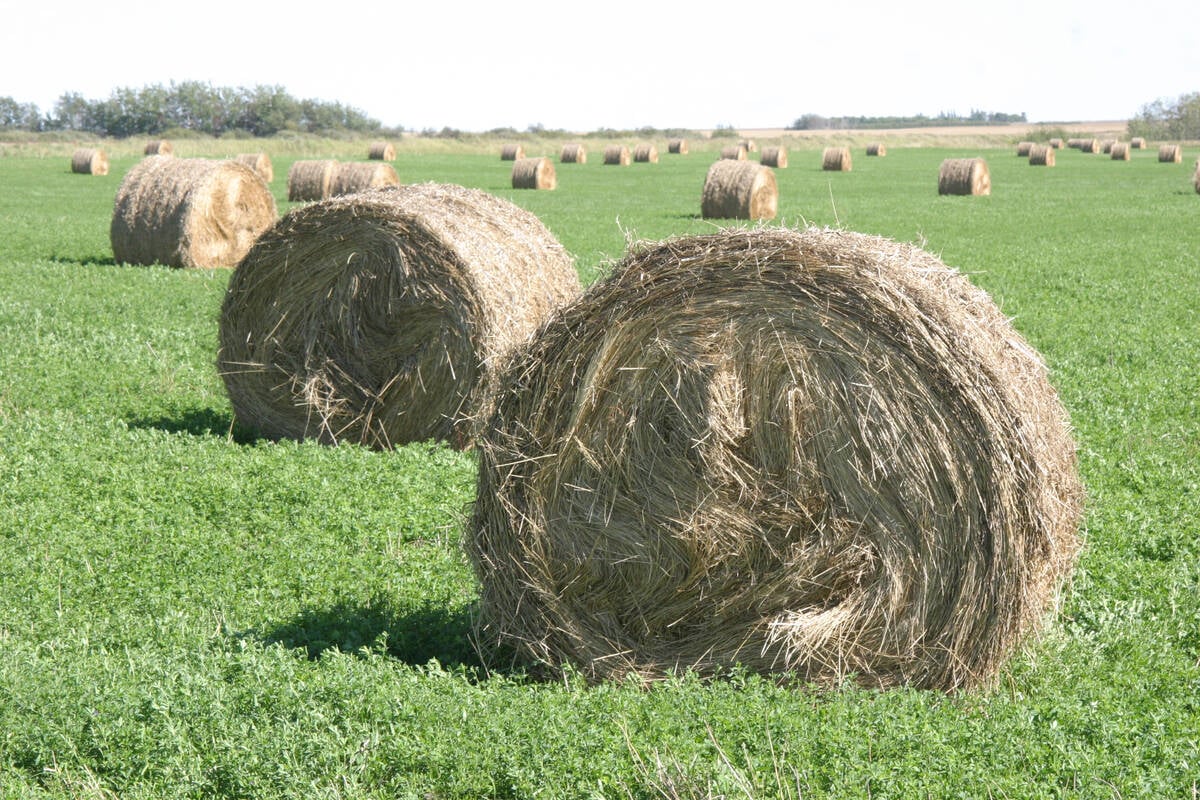Ebola hemorrhagic fever continues to rage in the West African countries of Liberia, Guinea and Sierra Leone with spillover into others.
The complete ramifications of this tragic loss of human lives have yet to be quantified, including orphaned children, economic damage and civil instability.
Many unanswered questions re-main with regard to the role animals play as hosts and transmitters of the Ebola virus.
Like many diseases, the ecology of Ebola is complex with many factors contributing to outbreaks. The source of the virus is consistently attributed to wildlife, although the exact species is unknown.
Read Also

Breaking down successful winter feeding into six steps
It’s that time of year when it is important to start planning for a cow herd’s winter feeding program. Here are six steps I think are necessary to consider when getting your feed tested.
Fruit bats may be the reservoir host, although rodents are another possibility. From these pathogen reservoirs, the virus spills over into other mammals, including monkeys, chimpanzees, gorillas and humans.
Infected wildlife, including bats and primates, can be harvested for the bush meat trade. Hunters contract the Ebola virus when processing harvested animals, sparking an outbreak.
Once the virus enters a human host, it can spread to other people through direct contact with infected blood and secretions.
However, Dr. Craig Stephen, executive director of the Canadian Wildlife Health Cooperative, said blaming wildlife isn’t the answer.
“Access to care, social customs, poverty, human movement and changes in land use play a much bigger role in the growth and spread of the Ebola epidemic than do wildlife. We need to deal with these problems, too.”
Humans aren’t the only victims of Ebola. Several critically endangered wildlife species are also susceptible to the virus, including lowland gorillas and chimpanzees. Many primates that contract the virus ultimately die. Some researchers have suggested that great apes should be regularly monitored for Ebola because it may be an early warning for future outbreaks.
Ebola in great apes can devastate already critically endangered populations.
Along with poaching and habitat loss, Ebola outbreaks may push our closest wildlife relatives to extinction.
Some criticize efforts to save great apes from Ebola as a wasteful use of resources, but others recognize the interconnectedness of our existence.
“Basically, separating animal health and our health is the surest way to a bad outcome,” Stephen said.
“Indeed, the trend of seeing people and animal health as separate things has been the source of much of our ignorance on diseases like Ebola and how to prevent them.”
There is a rudimentary understanding of Ebola virus in wildlife, but shockingly little is known about infections in domestic animals.
The most informative study to date was done in 2002 during the Ebola outbreak in Gabon.
Researchers tested blood of free-ranging dogs, which had ample opportunity to consume infected dead wildlife. They found that 32 percent had evidence of infection, but no dogs were sick with the disease. Their ability to spread the virus is unknown.
The issue of pets must be handled delicately, as was seen when a Spanish Ebola patient’s dog was euthan-ized as a precaution.
Worldwide public outrage followed and likely influenced the decision to quarantine the dog of the American nurse, Nina Pham, who contracted Ebola in Texas. News that the dog did not carry the virus provides important preliminary information about the risk posed by pets.
Ebola virus can also infect pigs, but the role pigs play in outbreaks and the risk to people is unknown.
There are many unanswered questions about the role of animals in Ebola.
“Society has re-learned the lesson that wildlife and human health and diseases overlap, but we have not yet sufficiently linked strategies to keep wildlife healthy while sustaining human well-being,” Stephen said.
“The current outbreak may provide the political will to invest in the necessary research to figure out some of these strategies.”
Hopefully, this knowledge will prevent and mitigate future epidemics.














